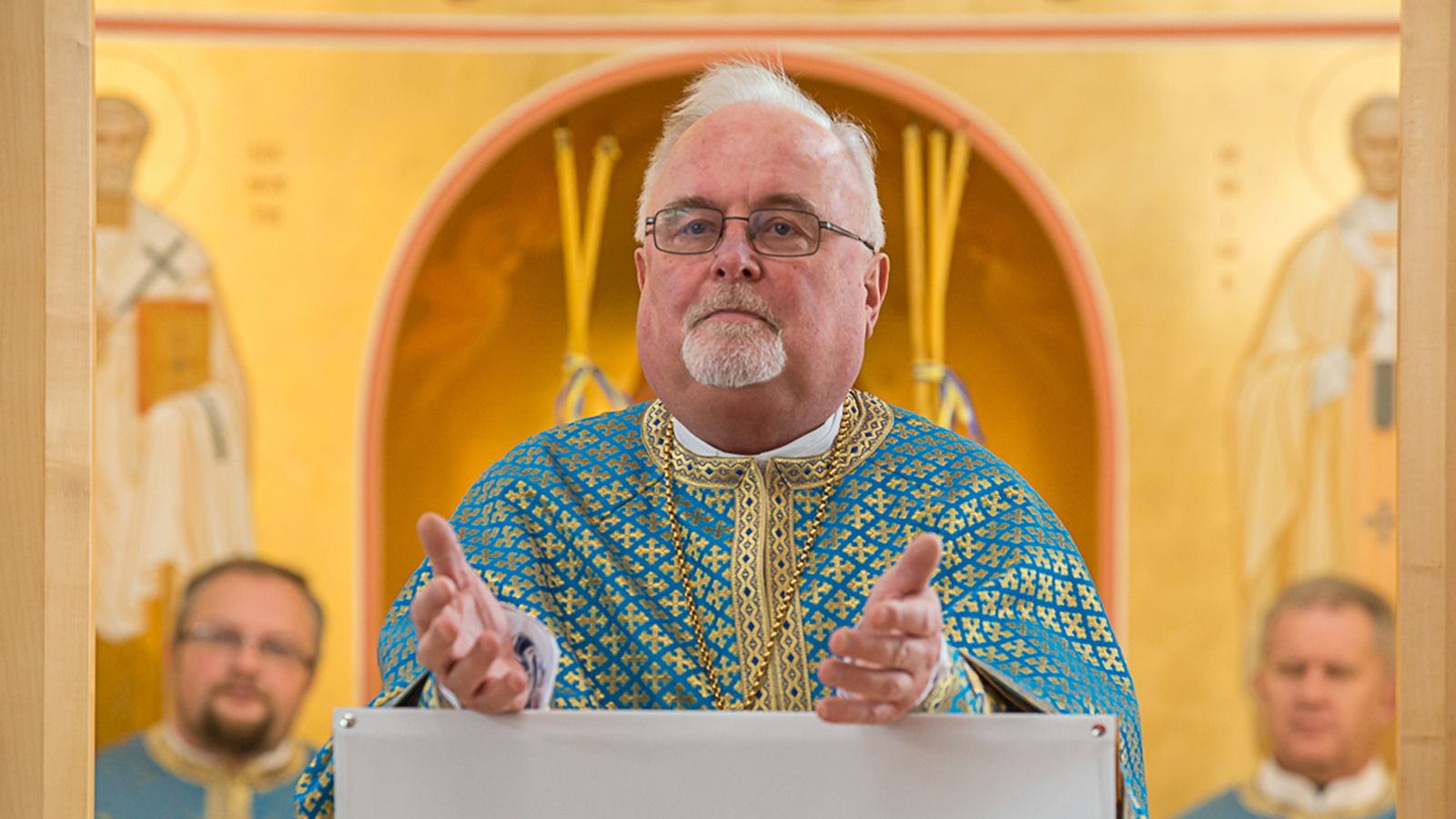The lack of unity between the Orthodox Churches in the world does not contribute to a successful Catholic-Orthodox dialogue — Fr. Iwan Dacko
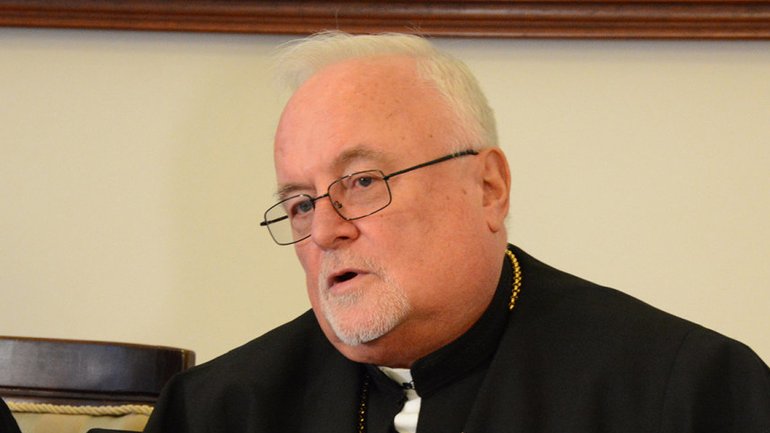
About this commission, its tasks, history, the atmosphere that prevails at the meetings, as well as about the document that they originated, our conversation with Fr. Dr. Iwan Dacko, Mitred Protopresbyter, President of the Institute of Ecumenical Studies of the Ukrainian Catholic University and Professor of Ecumenical Theology.
— Father Iwan, since when you have been a member of this commission, who do you represent there?
— At the end of October 2005, the late Patriarch Lubomyr Husar asked me if I was ready to become a member of this Commission. After my positive answer, in the middle of December 2005, I received a letter from the then president of the Pontifical Council for the Promotion of the Unity of the Churches, Cardinal Walter Kasper, that I was named a member of the same Commission and that in the second half of 2006, its plenary assembly would take place in Belgrade (Serbia).
I have been the official representative of the Ukrainian Greek Catholic Church for 18 years and in this role I participated in all the last seven plenary assemblies in: Belgrade, Serbia (September 18-25, 2006), Ravenna, Italy (October 8-14, 2007), Paphos in Cyprus (October 16-23, 2009), Vienna in Austria (September 20-27, 2010), Amman in Jordan (September 15-23, 2014), Chieti in Italy (16-21 September 2016) and in Alexandria, Egypt (May 31 - June 8, 2023).
In November 2016, His Beatitude Patriarch Sviatoslav asked the current president of the Pontifical Council for the Promotion of the Unity of Churches, Cardinal Kurt Koch, that I become a member of the Coordinating Committee of this Commission, and within a month I received a letter from the same Cardinal Koch appointing me as a member of the Coordinating Committee. So, for seven years I have also served in the Committee, where Orthodox and Catholics work together to develop a strategy and plans for the further work of the Commission.
As a member of the Coordination Committee, I participated in four meetings: in Leros, Greece (September 5-9, 2017), Bose in Italy (November 13-17, 2018), again in Bose, Italy (November 11-15 2019) and Rethymno in Crete, Greece (May 16-20, 2022).
Usually, the Coordination Committee meets at least once a year, but due to the COVID-19 pandemic, these meetings did not take place in 2020-2021.
In addition, for nine years I participated in the English-language subcommittee, where I developed and presented three of my works: The Role of the Bishop of Rome in the Communion of the Church during the First Millennium (2009); further, The Ministry of the Bishop of Rome in the Ninth Century th Century with Special Consideration on the Question of Uniatism and Primacy and synodality in the second millennium and today – their update at the beginning of the 20th century with a special consideration of the question of Uniatism (2018).
It is also important to emphasize that after each Plenary Assembly and meetings of the Coordination Commission, I always sent and continue to send to the Head of our Church - whether the late Patriarch Lubomyr or the current Patriarch Sviatoslav - a detailed report on the work done, noting these places and issues that are particularly important for the UGCC. As far as I know, His Beatitude Sviatoslav presents and discusses these questions during the sessions of the Synod of all bishops of the UGCC, as well as to the members of our Permanent Synod.
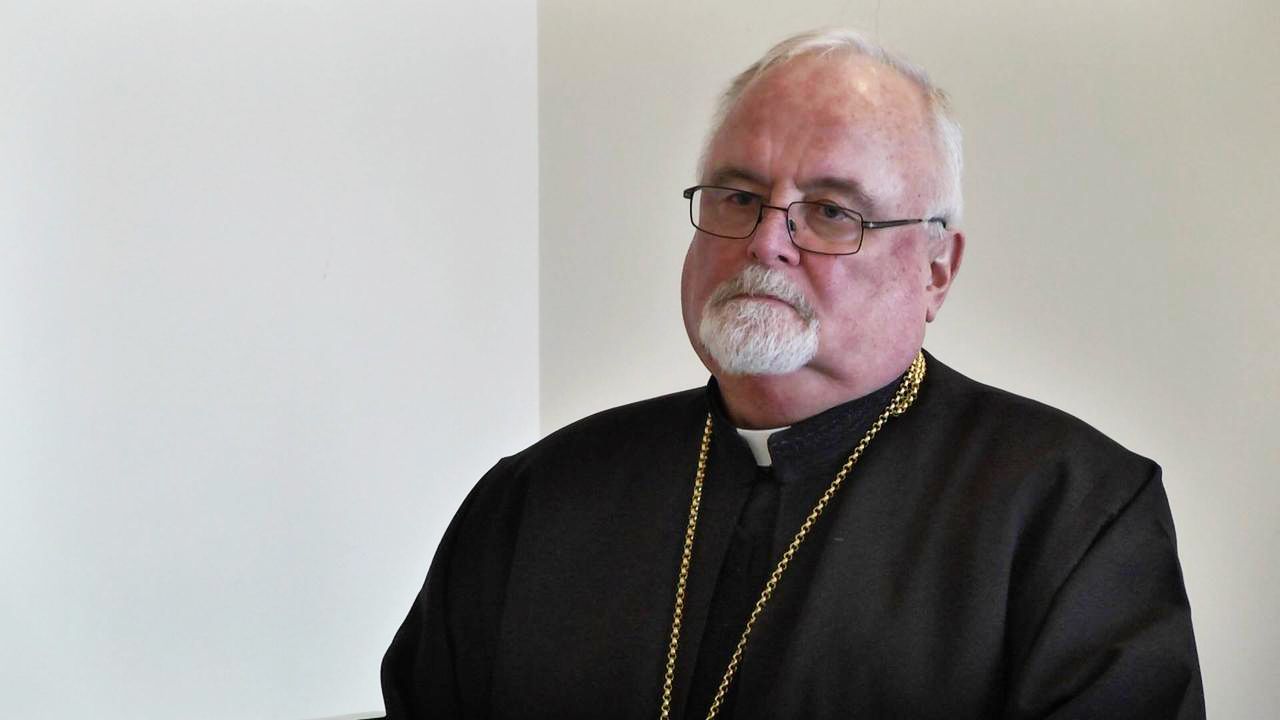
— The commission was created more than 40 years ago. What is its status, composition, task, what should it produce?
— The commission was created on November 30, 1979 in the сentre of the Ecumenical Patriarchate in Fanar (Istanbul) in the presence of the then Ecumenical Patriarch Dimitrios I and St. Pope John Paul II. So, this Commission has existed for 44 years. And the first plenary assembly was held from May 29 to June 4, 1980 in Patmos in Rhodes - Greece.
In my presentation in September 2019 to all Eastern Catholic Bishops of Europe during the conference entitled "The Ecumenical Mission of the Eastern Catholic Churches in Today’s Europe" held in Rome (September 12-14, 2019), I presented the entire history of the Commission from its beginning until today. This article was published in the Vatican publishing house Libreria Editrice Vaticana, 2019 in the Italian original, and the Ukrainian translation was published in 2022.
Regarding the status of this Commission, representatives of different Churches are official representatives of their Churches. The most authoritative authority for the Orthodox is Ecumenical Patriarch Bartholomew I. For Catholics, it is Pope Francis. For this reason, the co-presidents of the Commission are Metropolitan Job Getcha from the Ecumenical Patriarchate and Cardinal Kurt Koch from the Catholic Church. They both take turns chairing the meetings.
Under the directives of the Ecumenical Patriarch Bartholomew I and Pope Francis, our final task is to develop joint public documents to finally reach the unity and communion of our Churches.
As for the composition, each autocephalous Orthodox Church, mainly of the Byzantine tradition, sends two representatives of its Church - so the Orthodox Church has 34 members in this Commission. The Catholic party has the same number of members. That is, the full composition of the Commission is 68 members. The Catholic delegation includes cardinals, archbishops, bishops, priests, professors and two women, Prof. Dr. Theresia Hainthaler (Frankfurt, Germany) and Prof. Dr. Barbara Hallensleben (Fribourg, Switzerland).
There were only 20 members from the Orthodox side in Alexandria, because the delegations from the Antioch, Moscow, Serbian and Bulgarian Patriarchates did not arrive, and the Georgian delegation, at least since I have been a member of the Commission, always arrives two days later and returns home two days before the end of the meetings. I think that they do this in order not to take responsibility for the decisions of the assembly. Because before the end of the meetings, the question is always asked whether everyone present agrees with the decisions; and all give their consent. The Georgian delegation bypasses this situation, and therefore the Communiqué from Alexandria states that: "the delegation of the Patriarchate of Georgia expressed disagreement with some points of the document."
As can also be seen from the Communiqué, the Catholic side was represented by only 18 members. This is because Cardinal Jean-Louis Tauran, Bishop Florentin Crihalmeanu and Monsignor Eleuterio Fortino died. Bishop Gerhard Feige of Magdeburg refused to be a member of the Commission. And because 80-year-old members are automatically removed due to age, four members did not come to Alexandria – these were the founder members of the Commission, Archbishop Paul Nabil El-Sayah of the Maronite Church, Archbishop Yannis Spiteris, Bishop Dimitrios Salachas and Fr. Frans Bouwen.
The Catholic side felt their absence quite strongly, because without Archbishop Yannis Spiteris we had no one from the Roman Catholic Church of Greece, and without Archbishop Paul Nabil El-Sayah we did not hear the voice of the Maronite Church. There is also no doubt that Bishop Dimitrios Salachas is a highly qualified canonist and respected, in particular, by the Greek Orthodox. Equally Frans Bouwen, who lives permanently in Jerusalem, is a very competent theologian and a perceptive ecumenist.
In private conversations, Cardinal Koch assured us that the Pontifical Council for the Promotion of Church Unity will appoint new members of the Commission to replace the dead and those who have passed away due to age.
This circumstance has also led to the fact that I am currently the only representative of the Eastern Catholic Churches. And in five years, when I will be 80 years old, a new representative from the UGCC will have to be found.
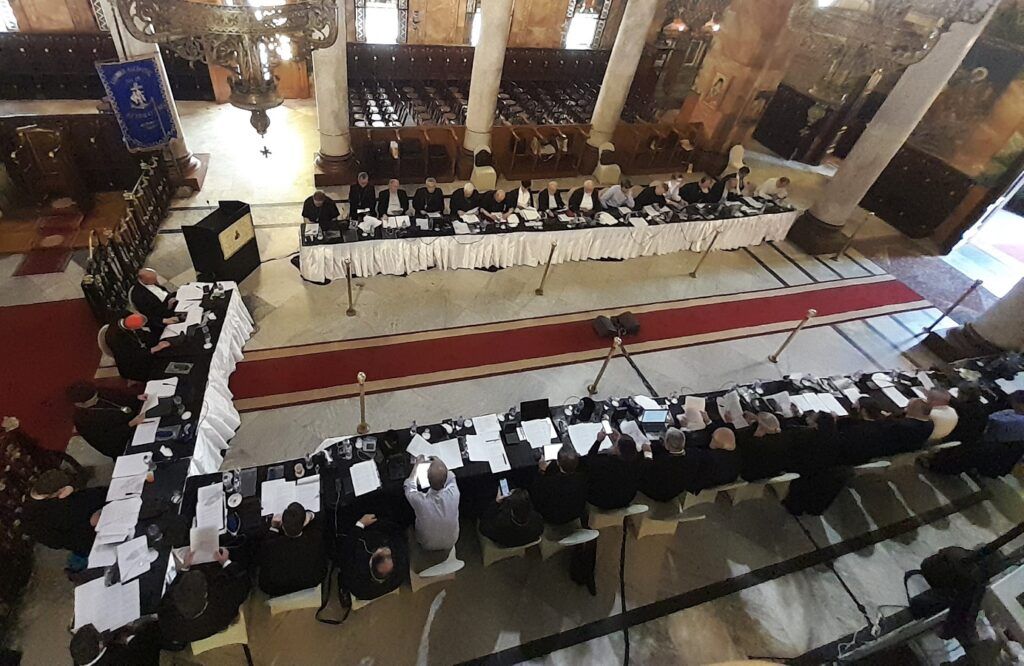
— By the way, the name of the Commission is "Roman Catholic", and you represent the UGCC...
— I would like to emphasize one more important point. In 1979, when this Commission was created, it was officially called the Joint International Commission for the Theological Dialogue between the Roman Catholic Church and the Orthodox Church.
Unfortunately, the late Archbishop Myroslav Stefan Marusyn, as secretary of the Congregation for the Eastern Churches, did not pay attention to the fact that the Eastern Catholic Churches are not Roman Catholics, but Eastern Catholics. It is known that then, as well as today, the Orthodox side demanded this Roman Catholic.
Because this is an important issue for us, Greek-Catholic Ukrainians, in my mentioned presentation of 2019, I wrote the following. I quote in full.
"It was in Belgrade, during a private meeting with Cardinal Walter Kasper, that the Eastern Catholics asked (and there were five of them at the time) whether it would be possible to remove the adjective "Roman", i.e. "Roman Catholic" from the name of our Commission.
They then repeated their request during a meeting of Catholic delegates. They argued that, among other things, Pope John Paul II in his apostolic letter Orientale Lumen and encyclical Ut unum sint, speaking about the Commission, never used the adjective "Roman". Shortly afterwards, Cardinal Kasper gathered all of us Eastern Catholics and said that Pope Benedict XVI and himself agreed with this valid request of ours and that the Pope reminded him how during the Hitler regime the Nazis reproached Catholics for being römisch-katholisch (Roman Catholics), which means that there are not enough "German" Catholics. Therefore, Pope Benedict XVI was ready to support the removal of the adjective "Roman", but unfortunately, for the Orthodox it was and still is a matter of principle - the cardinal continued - since they would never, at least not yet, admit that Eastern Catholics are a "Church", as defined by the Second Vatican Council.
«We answered: it is unfair that we, Catholics, have to give in to the pressure of the Orthodox, especially if we take into account the documents of the Second Vatican Council and the papal documents Orientale Lumen and Ut unum sint, because in this case we will be considered something like an appendix (in Italian we used the word appendice) to the Catholic Church. The cardinal knew our views, but he demanded obedience, otherwise there was a danger of failure or at least a serious complication of the dialogue.»
"I remember that the following year (2007) during the plenary meeting in Ravenna, this request was repeated, and the co-president, Metropolitan John Zizioulas, replied with a slight smile that Catholics should not insist on this issue, because it could hinder the continuation of our work. So in this matter, we are left with what was. Later, during a private conversation with Metropolitan Ivan Zizioulas, I asked why the Orthodox adhere so firmly to this position, and he answered me that he personally knows and understands our position, but the Orthodox Church as a whole, at least for now, does not accept this request. Therefore, we will have to try again in the future...”
"Personally, I am surprised that the Catholic side did not insist more strongly on this issue even before the beginning of this dialogue and the establishment of our Commission - perhaps the reason was the fact that the presence of Eastern Catholics was very small, or it was done to avoid further obstacles. But this issue will definitely have to be resolved sooner or later in the future."
Unfortunately, the Orthodox insist on this issue to this day and involuntarily, for the sake of continuing the dialogue, we have to take this into account, but insist that we are not "Roman Catholics"..
— Why were there no representatives of the Orthodox Church of Ukraine (OCU) in Alexandria?
— I presented this issue at one of the plenary sessions in the presence of all Orthodox and Catholic members of the Commission. I got an answer to this from Metropolitan Job Getcha, by the way, also a Ukrainian by origin, that given the fact that Orthodoxy is divided after the proclamation of Tomos on the autocephaly of the Orthodox Church of Ukraine, in particular, only four Orthodox Churches (Ecumenical Patriarchate, Alexandrian, Greek and the Church of Cyprus) recognized it, His Holiness Patriarch Bartholomew I himself decided that for the good of all Orthodoxy and in order not to cause representatives of other Churches not to come, not to invite the Orthodox Church of Ukraine to the Plenary Assembly in Alexandria.
When I stated that such a position could cause a lot of pain to the faithful, clergy and the hierarchy of the OCU, Metropolitan Job Getcha replied that the hierarchs of the OCU should make every possible effort to be recognized by other autocephalous Orthodox Churches.
— By the way, how do you assess the state of the Orthodox Churches?
— First of all, I will outline the positive elements.
The host of the plenary assembly, Pope and Patriarch of Alexandria Theodoros II, was extremely friendly and hospitable. He came several times when we had meetings, but did not take part in the discussions. He dined with us on different occasions, invited everyone to dinner and approached and talked with each member - Catholic or Orthodox.
At the very beginning, when I was introduced to him and apparently told that I was a representative of the UGCC, I told him: "Your Beatitude! I ask for your blessing not only for myself, but for the whole of Ukraine, for our soldiers and the entire nation, and for a just peace in Ukraine and throughout the world." And the Patriarch answered: "I bless you and all of Ukraine." I was extremely pleased to hear when Patriarch Theodoros II, after the Divine Liturgy, during his sermon, said: "I was asked by the representative of Ukraine to bless his homeland, and I gladly give my blessing and pray for a just peace in Ukraine."
I am quite sure that, under the influence of these words, during private conversations there was talk about the war in Ukraine and everyone expressed their solidarity and support for Ukraine. Even in the Communiqué it was said: "During the services on Saturday, June 3, and Sunday, June 4, prayers were offered for peace in Ukraine and for the repose of the recently deceased members of the Commission."
It should also be said that Patriarch Theodoros II did not mention Patriarch Kirill of Moscow in the diptychs, but he did mention Metropolitan Epiphanius of Kyiv. When I asked why Patriarch Theodoros II did not mention the Patriarch of Moscow, I received the answer that he severed ties with the Moscow Patriarchate because, without his knowledge, Patriarch Kirill sent a bishop to his territory for the Russian Orthodox faithful. Patriarch Theodoros II not only suspended, but defrocked this bishop of his priestly status and severed ties with the Moscow Patriarchate.
It was also a postive sign that we - Orthodox and Catholics - prayed together more, and not just discussed and debated. On Saturday, June 3, 2023, we prayed for the repose of the recently deceased members of the Commission. I have already mentioned the names of the deceased Catholic members above, and for the Orthodox, in particular, we prayed for the repose of Metropolitan Joannis Zizioulas, Metropolitan Kallistos Ware Metropolitan Gennadios Limouris, Archbishop Anastasios of Tirana and Archbishop Jeremiasz of Wroclaw-Szczecin.
As for other matters of concern, they were not discussed during the official meetings. But privately, mainly during breaks, lunches or dinners, there were opportunities to talk with different people, Orthodox or Catholic. For example, in a private conversation with two representatives of the Romanian Orthodox Church, I asked them whether they recognised the autocephaly of the Orthodox Church of Ukraine. Their answer was not even enigmatic. They simply replied that they neither recognised nor deny the OCU.
They are just waiting for how things will develop. They also made it clear that the OCU hierarchy must take the first step to the Romanian Patriarch, and they will do what their Patriarch says. I was somewhat disappointed with their response, but took into account their point of view.
I spoke in Ukrainian with representatives of the Polish Orthodox Church. We did not talk about the OCU, but the Greeks told me that this Church deliberately sent only two lay people so that they would not have to celebrate together during the Divine Liturgy.
I talked a lot and frequently with Archbishop Job Getcha - always in Ukrainian - and he told me, as well as other Greek delegates, that Ecumenical Orthodoxy is going through difficult times. The Moscow Patriarchate does not take any part in all initiatives that come from the Ecumenical Patriarchate, starting with the Great Orthodox Council in Crete (2016). This became even stronger after the granting of autocephaly to the OCU; and the Patriarchates of Antioch, Serbia and Bulgaria boycott the Ecumenical Patriarch of the Moscow Patriarchate, and the Polish Orthodox Church does not want to break with Constantinople, but wants to be in contact with the Moscow Patriarchate. And the Georgian Church does not know what stance they should take.
When I asked why these Churches are doing this, I got one answer: Antioch, Serbia, Bulgaria, Georgia and Poland receive considerable funds from Russian oligarchs, on the instructions of Patriarch Kirill of Moscow, and are completely dependent on him. Metropolitan Job Getcha also added that the Ukrainian Orthodox Church of the Moscow Patriarchate also receives significant funds from Russian and Ukrainian oligarchs. Metropolitan Job Getcha spoke positively about the Jerusalem Patriarch, who, despite pressure from Moscow, maintains contact with the Ecumenical Patriarchate.
Metropolitan Job also added that he had serious difficulties in order to maintain the level and unity of opinions of the Orthodox representatives, as the Ecumenical Patriarch had set for himself. He also stated that after the deaths of Metropolitan Joannis Zizioulas, Metropolitan Kallistos Ware, and the departure of the Romanian theologian, Archdeacon Dr. Ioan Ica, there is a lack of strong theologians and canonists among the Orthodox delegates.
I also mentioned that the Catholic side would have to strengthen its representation with new insightful theologians and canonists. By the way, I added that among the young members, I was impressed by the knowledge and competence of the Metropolitan of the Alexandrian Patriarchate, Petros (Metropolitan of Accra). By the way, he teaches ecumenical theology at the Catholic University of Notre Dame in USA. He expressed to me his personal desire to cooperate with the Institute of Ecumenical Studies of UCU. I was also impressed by the new co-secretary of our Commission from the Ecumenical Patriarchate, Fr. Alexis Torrance. He also gladly agreed to my offer to participate in various initiatives of the Institute of Ecumenical Studies.
To conclude the topic of my conversations with Metropolitan Jov Gecha, it is worth emphasising that he is a Ukrainian born in Montreal (Canada). He speaks Ukrainian well, and I must say that he is a good co-president. As far as I know, he is comforted by the great trust of Ecumenical Patriarch Bartholomew I, and is open to dialogue. He also assured me that he would gladly participate in various conferences and events organised by the Institute of Ecumenical Studies of the Ukrainian Catholic University.
In general, the state of Orthodoxy around the world is in a sad state. And we must pray that, first of all, the unity of all Orthodox Churches prevails, and then it will be possible to talk about the unity between the Orthodox and Catholic Churches.
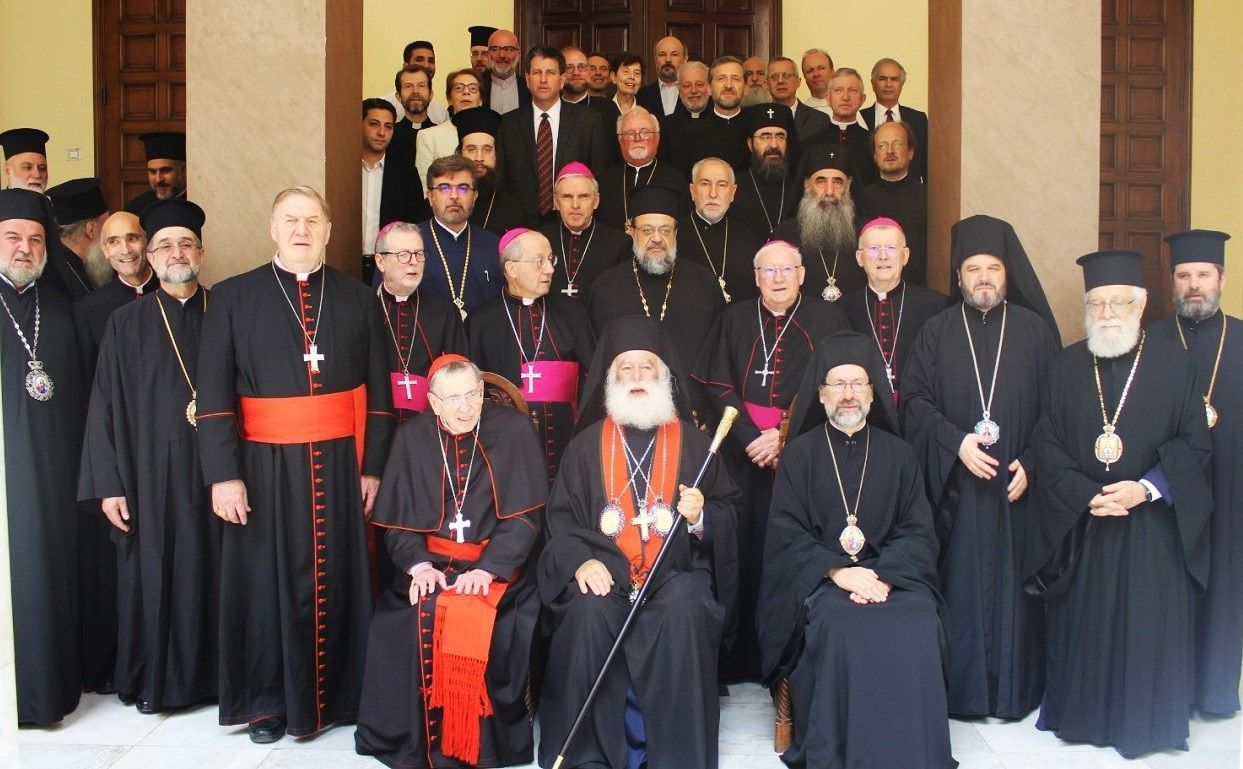
— Was the calendar issue discussed?
— During the official meetings, there was no discussion on the calendar issue. Still, privately I talked about this matter with a Catholic member of the Orthodox-Catholic Commission on the joint celebration of Easter, Fr. Hyachinthe Destivelle. He told me there were meetings on this issue, but without much enthusiasm. When I asked if he thought that in 2025, when the Church will celebrate the 1700th anniversary of the first Council of Nicaea, the common celebration of Easter would be decided, I got the answer that it is possible. Still, presently this issue is not on the agenda. He also added that if Pope Francis and Patriarch Bartholomew I increase pressure on the commission, this issue may be positively resolved by 2025.
— By the way, did you discuss in Alexandria about the celebration of the 1700th anniversary of the first Council of Nicaea?
— There were hints on this matter during official meetings, but it was said that there will also be talks about this with the World Council of Churches, which would also like Western Protestant communities and churches to be included in these celebrations. Nothing more specific was said.
— What is your general impression of the 15th Plenary Assembly of this Commission?
— Of all the plenary assemblies in which I participated, the best for me was the plenary assembly in Ravenna (2007), although even then the representatives of the Moscow Patriarchate left the meeting, because the delegations of the Estonian and Latvian Churches of the Ecumenical Patriarchate were present.
The positive resuli in Alexandria was that we completed the work on the document Synodality and Primacy in the Second Millennium and Today (June 7, 2023) and the joint extensive Communiqué.
The sad part was the lack of unity among the Orthodox and the observation of their quarrels and disagreements.
There was also a lack of new Catholic representatives, in particular, from the Eastern Catholic Churches.
There is no doubt that both universal Orthodoxy and the Catholic Church are facing new challenges. And this applies to the composition and work of this Theological Commission.
We must incessantly pray that the Holy Spirit gives us a special gift of wisdom, and under his guidance, we continue to work for the communion and unity of the Churches.
